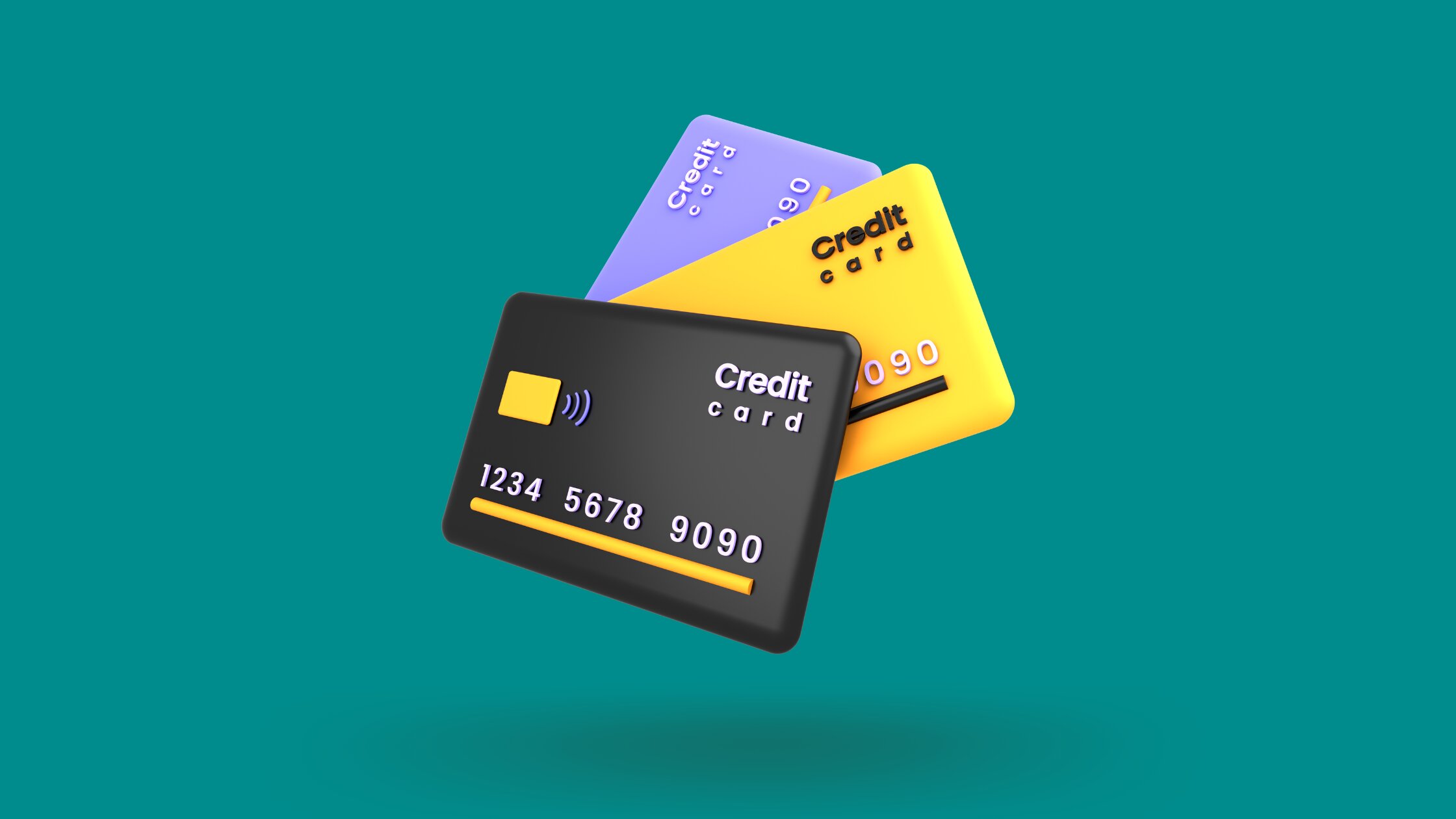What is a Crypto Credit Card?
A crypto credit card, also known as a cryptocurrency credit card or a bitcoin credit card, is a financial tool that allows users to make purchases using their cryptocurrency holdings just like they would with a traditional credit card. It bridges the gap between the digital world of cryptocurrencies and the traditional financial system. These cards are typically issued by financial institutions or fintech companies that have partnered with cryptocurrency exchanges.
Unlike traditional credit cards, which are usually linked to a bank account or a line of credit, crypto credit cards are linked to a cryptocurrency wallet. This means that users can spend their cryptocurrencies directly from their digital wallet without the need to convert them into fiat currency. The transactions are processed through the cryptocurrency network, enabling users to make purchases using Bitcoin, Ethereum, or other supported cryptocurrencies.
Most crypto credit cards offer functionality similar to traditional credit cards, including online and offline purchases, cash withdrawals from ATMs, and even contactless payments through NFC technology. Some cards also come with additional features like rewards programs, travel insurance, and concierge services.
It is important to note that not all cryptocurrencies are accepted by crypto credit cards. Typically, these cards only support the major cryptocurrencies like Bitcoin and Ethereum. However, with the growing popularity of cryptocurrencies, more cards are starting to offer support for a wider range of digital assets.
Crypto credit cards have gained significant popularity among cryptocurrency enthusiasts as they provide a convenient way to utilize their digital assets for everyday transactions. They offer a seamless integration of cryptocurrency payments into the existing financial system, making it easier for individuals to embrace cryptocurrencies as a mainstream form of payment.
In the next section, we will explore how these crypto credit cards work and the underlying mechanisms that allow users to transact with their cryptocurrencies in a seamless and efficient manner.
How Does it Work?
Crypto credit cards work by leveraging the existing infrastructure of traditional payment networks while incorporating blockchain technology to process transactions involving cryptocurrencies. Here is a simplified overview of how these cards work:
- Card application: Users apply for a crypto credit card through a participating financial institution or fintech company. The application process usually includes identity verification and creditworthiness assessment.
- Card issuance: Once approved, users receive a physical or virtual card that is linked to their cryptocurrency wallet. The card is typically equipped with an EMV chip or NFC technology for secure payments.
- Cryptocurrency funding: Users need to load their crypto credit card with cryptocurrencies from their digital wallets. The supported cryptocurrencies may vary depending on the card provider.
- Transaction processing: When making a purchase, the user initiates the transaction by presenting the crypto credit card to the merchant. The card details and transaction information are securely transmitted to the card network.
- Cryptocurrency conversion: Behind the scenes, the card network converts the cryptocurrency amount into the selected fiat currency using real-time exchange rates. This conversion enables the merchant to receive the payment in their preferred currency.
- Transaction settlement: The card network settles the transaction with the merchant, deducts any applicable fees, and credits the transaction amount to the merchant’s account in the chosen fiat currency.
- Cryptocurrency deduction: The equivalent amount of cryptocurrencies used for the transaction is deducted from the user’s crypto credit card balance in their cryptocurrency wallet.
- Transaction confirmation: The transaction details are recorded on the blockchain, ensuring transparency and immutability. This also allows users to track their transaction history and verify the accuracy of their spending.
It is important to note that the crypto credit card provider acts as an intermediary between the user, the merchant, and the cryptocurrency network. They handle the currency conversion, transaction settlement, and provide the necessary tools and infrastructure to facilitate secure and seamless transactions.
Overall, crypto credit cards simplify the process of using cryptocurrencies for everyday transactions. By integrating with the existing financial system, they enable users to spend their cryptocurrencies like any other form of payment. With the growing adoption of cryptocurrencies, we can expect to see further advancements in this field, making crypto credit cards even more accessible and convenient for users.
Benefits of Crypto Credit Cards
Crypto credit cards offer several benefits that make them an attractive option for cryptocurrency holders. Here are some of the key advantages:
- Convenience: Crypto credit cards provide a convenient way to use cryptocurrencies for everyday transactions. Users can make purchases at online and offline merchants, withdraw cash from ATMs, and even use contactless payments, just like they would with a traditional credit card.
- Wider acceptance: By converting cryptocurrencies to fiat currency at the point of sale, crypto credit cards overcome the challenge of limited acceptance of digital assets. This enables users to spend their cryptocurrencies at any merchant that accepts traditional credit cards.
- Rewards and perks: Many crypto credit cards offer rewards programs, allowing users to earn cashback, loyalty points, or other incentives for their purchases. Some cards even provide additional perks like travel insurance, airport lounge access, and concierge services.
- Financial control: Crypto credit cards provide users with the ability to manage their cryptocurrency holdings while enjoying the benefits of credit. Users can easily monitor their transactions, track their spending, and set limits, enhancing financial control and helping them stay within budget.
- Security: Crypto credit cards prioritize security by utilizing advanced encryption techniques and secure elements. Additionally, the decentralized nature of blockchain technology ensures transaction transparency, reducing the risk of fraud and unauthorized access.
- Seamless integration: Crypto credit cards seamlessly integrate cryptocurrencies into the traditional financial system. This paves the way for wider acceptance and adoption of cryptocurrencies as a legitimate form of payment, bridging the gap between digital currencies and fiat currencies.
- Emerging partnerships: The popularity of crypto credit cards has led to partnerships between financial institutions, cryptocurrency exchanges, and fintech companies. These partnerships introduce innovative solutions and create new opportunities for users to leverage their cryptocurrencies.
Overall, crypto credit cards offer a range of benefits that enhance the usability and practicality of cryptocurrencies. They provide a bridge between the world of digital assets and traditional financial systems, making it easier for individuals to embrace cryptocurrencies and use them for everyday transactions.
Risks and Challenges
While crypto credit cards offer numerous benefits, they also come with certain risks and challenges that users should be aware of. Here are some key considerations:
- Volatility: Cryptocurrencies are known for their price volatility, which can lead to unpredictable fluctuations in the value of the user’s crypto credit card balance. This can impact the purchasing power and overall financial stability of the user.
- Exchange rate risk: Crypto credit cards convert cryptocurrencies to fiat currency at the point of sale using real-time exchange rates. However, these rates can vary among different card providers, potentially resulting in higher transaction costs or unfavorable exchange rates for the user.
- Fees and charges: Users should carefully review the fees and charges associated with crypto credit cards. These may include transaction fees, withdrawal fees, conversion fees, annual fees, and more. It’s important to understand these costs upfront to make informed decisions.
- Regulatory uncertainty: The regulatory landscape surrounding cryptocurrencies is still evolving in many jurisdictions. This uncertainty may result in potential legal and compliance challenges for both crypto credit card providers and users.
- Security risks: While crypto credit cards prioritize security, there is still a risk of hacking, data breaches, and unauthorized access to the user’s cryptocurrency wallet or personal information. Users should take necessary precautions, such as keeping their private keys secure and using reputable card providers.
- Limited cryptocurrency support: Not all cryptocurrencies are supported by crypto credit cards. Only major cryptocurrencies like Bitcoin and Ethereum are typically accepted. This limits the flexibility for users who hold lesser-known or niche cryptocurrencies.
- Third-party reliance: Using a crypto credit card entails relying on third-party financial institutions or fintech companies. In case of any technical issues, downtime, or even bankruptcy of the card provider, users may face difficulties accessing their funds or making transactions.
It is essential for users to understand and carefully assess these risks and challenges before using a crypto credit card. Conducting thorough research, reviewing the terms and conditions, and consulting with financial advisors can help users mitigate potential risks and make informed decisions.
Despite these challenges, the continuously evolving cryptocurrency ecosystem and the increasing adoption of cryptocurrencies provide a solid foundation for the growth and improvement of crypto credit cards in the future.
Popular Crypto Credit Card Providers
As the demand for crypto credit cards continues to rise, several financial institutions and fintech companies have emerged as popular providers in the market. Here are a few notable crypto credit card providers:
- BlockFi: BlockFi offers a crypto credit card that allows users to earn Bitcoin as rewards for their purchases. The card supports multiple cryptocurrencies and provides a competitive rewards program.
- Coinbase: Coinbase, one of the leading cryptocurrency exchanges, offers a crypto credit card in collaboration with Visa. The card allows users to spend their cryptocurrencies for everyday purchases and earns them a cashback reward in cryptocurrency.
- Crypto.com: Crypto.com has its own crypto credit card, known as the Crypto.com Card. The card offers attractive rewards, such as cashback on purchases and exclusive perks including airport lounge access and no foreign transaction fees.
- Binance: Binance, one of the largest cryptocurrency exchanges globally, has launched the Binance Card. This card enables users to spend their cryptocurrencies at any merchant that accepts traditional credit cards, making it convenient and widely accepted.
- Gemini: Gemini, a trusted cryptocurrency exchange and custodian, has introduced the Gemini Credit Card. With this card, users can earn crypto rewards on their purchases and enjoy other benefits such as fraud protection and comprehensive security features.
These are just a few examples of the popular crypto credit card providers available in the market. Each provider offers its unique features, rewards programs, and supported cryptocurrencies. It is essential for users to research and compare different options to find the card that best fits their needs.
Additionally, it is worth noting that traditional financial institutions and credit card companies are also starting to explore the integration of cryptocurrencies into their offerings. This indicates a growing interest in the space, which may lead to more diverse options for crypto credit cards in the future.
Before choosing a crypto credit card provider, users should consider factors such as fees, security measures, customer support, and compatibility with their preferred cryptocurrencies. Reading reviews and seeking recommendations from other users can also provide valuable insights.
As the adoption of cryptocurrencies and the demand for crypto credit cards continues to grow, it is likely that more providers will enter the market and offer innovative solutions to cater to the evolving needs of users.
Conclusion
Crypto credit cards have emerged as a bridge between the world of cryptocurrencies and traditional financial systems. They offer users the convenience of using their digital assets for everyday transactions, making cryptocurrencies more accessible and practical in the real world.
In this article, we explored what crypto credit cards are and how they work. These cards enable users to spend their cryptocurrencies at any merchant that accepts traditional credit cards. By converting cryptocurrencies to fiat currency at the point of sale, crypto credit cards overcome the challenge of limited acceptance.
There are several benefits associated with crypto credit cards, including convenience, wider acceptance, rewards and perks, financial control, security, seamless integration, and emerging partnerships. These advantages enhance the usability and practicality of cryptocurrencies as a means of payment.
However, it is crucial to be aware of the risks and challenges that come with using crypto credit cards. Volatility, exchange rate risks, fees and charges, regulatory uncertainties, security risks, limited cryptocurrency support, and reliance on third-party providers are all factors that users should carefully consider.
Various popular providers offer crypto credit cards with different features and rewards programs. Users should research and compare their options to find the card that best suits their needs and preferences.
Overall, crypto credit cards are an exciting development in the cryptocurrency space, providing a pathway for wider adoption and increased usability of digital assets. As the industry continues to evolve, we can expect more advancements and improvements in crypto credit card offerings to meet the growing demands of users.

























